
Bolgatanga, colloquially known as Bolga, is a town and also the capital of the Bolgatanga Municipal and the Upper East Region of Ghana. It share's a border to the north with Burkina Faso. Bolgatanga is 161 km (100 mi) to the north of Tamale. The town lies in the Red Volta Valley, with the White Volta and the cliffs of the Gambaga escarpment to the south of the town forming the southern boundary of the Upper East Region. As of 2021, the town has a population of about 142,509 people constituting females (74,659), representing 52.4 percent than males (67,850) constituting 47.6 percent. Some ethnic groups who lived in large qualities in Bolgatanga are Frafra, Daghati, Akan, Ewe, and Ga-Adangbe. The current mayor of the town is Rex Asanga. Bolgatanga Municipal's population in 2021 was with more females (74,659), repre- senting 52.4 percent than males (67,850) constituting 47.6 percent. The Municipal occupies a land size of 334 Km2 with a population density of 418.7 persons per square kilometre.
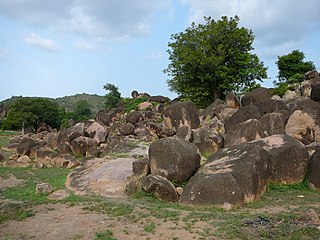
The Upper East Region is located in northern part of Ghana and it is the third smallest of the 16 administrative regions in Ghana. It occupies a total land surface of 8,842 square kilometers or 2.7% of the total land area of Ghana. The regional capital is Bolgatanga, which is sometimes referred to as Bolga. Other major towns in the region include Navrongo, Paga, Sandema, Bawku, and Zebilla, Tempane, Pusiga, Garu, Pwalugu, Widana

The University of Cape Coast (UCC) is a public collegiate university located in the historic town of Cape Coast in the central region of Ghana. The campus has a rare seafront and sits on a hill overlooking the Atlantic Ocean. It operates on two campuses: the Southern Campus and the Northern Campus. Two of the most important historical sites in Ghana, Elmina and Cape Coast Castle, are a few kilometers away from its campus.

Education in Ghana uses a dualistic approach encompassing both formal and informal learning systems. The current formal educational system was introduced during European colonisation. However, learning systems existed prior to that. The University of Moliyili is one of the earliest learning centers in Ghana established in the 1700s. During colonisation, European settlers initially introduced a formal education system addressed to the elites, while education of the average citizen was mainly informal, and based on apprenticeship. Economic activities in pre-colonial Ghana were based on farm produce shared within households and members of each household specialized in providing necessities such as cooking utilities, shelter, clothing, and furniture, and trade with other households was therefore practiced on a very small scale. As such there was no need for employment outside the household that would have otherwise called for disciplines, values, and skills through a formal education system. After colonization, Ghana's economy became a hybrid of subsistence and formal economy.
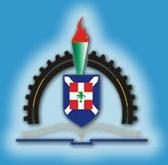
The Presbyterian University, Ghana is a partially private & public university with multi- campuses and its headquarters located at Abetifi-Kwahu in the Eastern Region of Ghana. It is one of the new universities in Ghana granted accreditation by the Ghana Tertiary Education Commission – GTEC. It was established by the Presbyterian Church of Ghana (PCG) on 23 November 2003 and inaugurated on 27 March 2004 by the former president of Ghana in that republic, John Agyekum Kufuor.
Takoradi Technical University is a public tertiary education institution (university) located in Sekondi-Takoradi, the capital of the Western Region of Ghana. Takoradi Technical University was established as a government technical institute in 1954 and became part of the State Tertiary Education System.
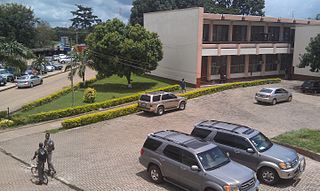
The Sunyani Technical University (STU) is a public tertiary institution in the Bono Region of Ghana. It is located northeast of Asufufu.
Formally Cape Coast Polytechnic is a public tertiary institution in the Central Region of Ghana.
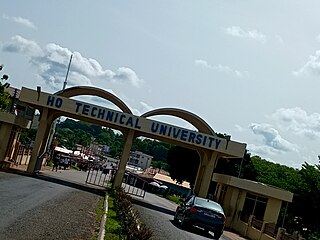
Ho Technical University, formerly Ho Polytechnic, is a public tertiary institution in the Volta Region of Ghana. The Polytechnic started in 1968 as a technical institute with the primary goal of providing pre-technical education. By 1972, the Institute made tremendous progress and upgraded its courses. In 1986, the institution was upgraded into a Polytechnic. However, it was not until 1993 that it got full backing of the law to become a fully-fledged tertiary institution, charged with the responsibility of training students to the Higher National Diploma (HND) and Degree Levels. The Polytechnic Law was replaced in September 2007 by the Polytechnics Act. Ho Technical University is one of the premier national tertiary institutions in the Volta Region. The Motto of the University is Adanu Nazu kekeli which means Adanu become light.
The Kumasi Technical University, formerly known as Kumasi Polytechnic, is a public tertiary institution in the Ashanti Region of Ghana.
The Ho Nurses' Training College is a public tertiary health institution in Ho in the Volta Region of Ghana. The college is in the Ho Metropolitan Assembly. The activities of the institution is supervised by the Ministry of Education. The University of Ghana awards a Diploma in Nursing after students from the institution have successfully completed a three-year nursing training programme. The institution is accredited by the National Accreditation Board. The Nurses and Midwifery Council (NMC) is the regulates the activities, curriculum and examination of the student nurses and midwives. The council's mandate Is enshrined under section 4(1) of N.R.C.D 117.
The Cape Coast Nursing and Midwifery Training College is a public tertiary health institution in the Cape Coast in the Central Region of Ghana. The college is in the Cape Coast Metropolitan Assembly. The activities of the institution is supervised by the Ministry of Health. The Kwame Nkrumah University of Science and Technology awards a Diploma in Nursing after students from the institution have successfully completed a three-year nursing training programme. The institution is accredited by the National Accreditation Board. The Nursing and Midwifery Council (N&MC) regulates the activities, curriculum and examination of the student nurses and midwives. The council's mandate is derived from the Health Professions Regulatory Bodies Act, 2013.
The Nurses Training College, Koforidua is public tertiary health institution in the Koforidua in the Eastern Region of Ghana. The college is in the Koforidua Metropolitan Assembly. The activities of the institution is supervised by the Ministry of Education. The University of Ghana awards a Diploma in Nursing after students from the institution have successfully completed a three-year nursing training programme. The institution is accredited by the National Accreditation Board. The Nurses and Midwifery Council (NMC) is the regulates the activities, curriculum and examination of the student nurses and midwives. The council's mandate Is enshrined under section 4(1) of N.R.C.D 117.
The Tamale Nurses Training College is a public tertiary health institution in Tamale in the Northern Region of Ghana. The college is in the Tamale Metropolitan Assembly. The activities of the institution are supervised by the Ministry of Health. The University of Ghana awards a Diploma in Nursing after students from the institution have successfully completed a three-year nursing training programme. The institution is accredited by the National Accreditation Board. The Nurses and Midwifery Council (NMC) is the regulates the activities, curriculum and examination of the student nurses and midwives. The council's mandate is enshrined under section 4 (1) of N.R.C.D 117.
The Holy Family Nurses' Training College is public tertiary health institution in the Berekum in the Brong Ahafo Region of Ghana. The college is in the Berekum District. The activities of the institution is supervised by the Ministry of Education. The University of Ghana awards a Diploma in Nursing after students from the institution have successfully completed a three-year nursing training programme. The institution is accredited by the National Accreditation Board. The Nurses and Midwifery Council (NMC) is the regulates the activities, curriculum and examination of the student nurses and midwives. The council's mandate Is enshrined under section 4(1) of N.R.C.D 117.
The Pantang Nurses' Training College is a public tertiary health institution located at Pantang in the Greater Accra Region of Ghana. The college is in the Accra Metropolitan Assembly. The activities of the institution is supervised by the Ministry of Education. The University of Cape Coast awards a Diploma in Nursing after students from the institution have successfully completed a three-year nursing training programme. The institution is accredited by the National Accreditation Board. The Nurses and Midwifery Council (NMC) regulates the activities, curriculum and examination of the student nurses and midwives. The council's mandate is enshrined under section 4(1) of N.R.C.D 117. The college specializes in the training of psychiatric nurses.
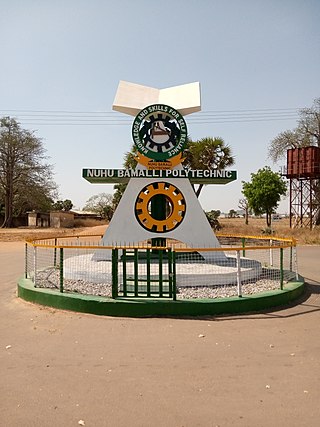
Nuhu Bamalli Polytechnic is a tertiary education institution in Zaria Kaduna State, Nigeria. The polytechnic was established on 2 February 1989 by the Kaduna state government to provide training and development techniques in the Field of engineering, applied science, commerce and other spheres of learning. The polytechnic is one of the tertiary teaching institutions owned and managed by the Kaduna State government. The polytechnic was named after the then Nigeria's foreign minister Nuhu Bamalli. In August 2022, Barrister Abdullahi Zubair Abdullahi was appointed the new Registrar of the polytechnic.

The Accra Technical University (ATU) was established in 1949 as a Technical School in Ghana and commissioned in 1957 as Accra Technical Institute before being converted into a Polytechnic in 2007 by the Parliament of Ghana.

Most governments decided to temporarily close educational institutions in an attempt to reduce the spread of COVID-19. As of 12 January 2021, approximately 825 million learners are affected due to school closures in response to the pandemic. According to UNICEF monitoring, 23 countries are implementing nationwide closures and 40 are implementing local closures, impacting about 47 percent of the world's student population. 112 countries' schools are open.











